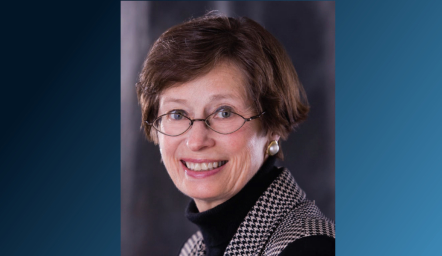Grace Foundation et al. v. Commissioner; T.C. Memo. 2014-229; No. 21052-12L
GRACE FOUNDATION, R. S. OHENDALSKI, TRUSTEE, Petitioner v.
COMMISSIONER OF INTERNAL REVENUE, Respondent
UNITED STATES TAX COURT
Filed November 6, 2014
R.S. Ohendalski (trustee), for petitioner.
David Baudilio Mora and Gordon P. Sanz, for respondent.
[*2] MEMORANDUM FINDINGS OF FACT AND OPINION1
DAWSON, Judge: Pursuant to section 6330(d),
2 Grace Foundation (Foundation) filed its petition for review of the Internal Revenue Service (IRS) Appeals Office's determination to proceed by levy to collect a $10,000 delinquency penalty assessed against the Foundation under section 6652(c) for its tax year ending December 31, 2003 (2003 tax year). The primary issue for decision is whether the IRS Appeals Office abused its discretion in sustaining the notice of intent to levy to collect the assessed delinquency penalty.
[*3] FINDINGS OF FACT3
Some facts have been stipulated. The stipulation of facts and the attached exhibits are incorporated herein by this reference.
R.S. Ohendalski established FT Services Trust, an irrevocable complex trust, in 1997. He subsequently created the Foundation, which held all of the FT Services Trust certificates and assets, to fulfill his "charitable desires". The Foundation is a section 4947(a)(1) nonexempt charitable trust that is treated as a private foundation, with Mr. Ohendalski as its trustee. When the petition was filed, the Foundation's principal place of business and Mr. Ohendalski's residence were in Texas. Further references to Mr. Ohendalski pertain to him in his capacity as the Foundation's trustee.
The Foundation is required to annually file a Form 990-PF, Return of Private Foundation or Section 4947(a)(1) Nonexempt Charitable Trust Treated as a Private Foundation (Form 990-PF). Its Form 990-PF for the 2003
4 tax year was [*4] due on May 15, 2004, but it was not filed until February 16, 2011. On its 2003 Form 990-PF the Foundation listed income (gross receipts) of $883,783, total aggregate cash contributions received of $890,900, and contributions of $80,000 to various ministries and churches.
On May 9, 2011, the IRS assessed a section 6652(c) delinquency penalty of $10,000 with respect to the Foundation's 2003 tax year. Its records do not reflect that the assessment of the delinquency penalty was approved by an IRS manager or supervisor. Pursuant to section 6303, respondent sent to the Foundation on June 13, 2011, a combined notice of intent to levy and a notice and demand for payment (Form CP504B) of the delinquency penalty by June 23, 2011.
On July 18, 2011, the IRS sent a notice of intent to levy to the Foundation regarding the delinquency penalty for the 2003 tax year. On August 15, 2011, the Foundation timely filed a Form 12153, Request for a Collection Due Process or Equivalent Hearing, signed by Mr. Ohendalski, requesting a collection due process (CDP) hearing with respect to the notice of intent to levy. In its request the Foundation stated: "Want to verify that proper assessment procedures were followed". The request further stated that the Foundation had "reasonable cause for lateness, as used professional."
[*5] By letter dated March 19, 2012, Mr. Ohendalski requested that Appeals provide him with "the initial determination" of the "IRC 6652" penalty regarding the untimely filed Form 990-PF for the 2003 tax year.
On April 2, 2012, Settlement Officer Bart A. Hill (SO) from the IRS Appeals Office was assigned to this case. He did not have any prior involvement with the Foundation's 2003 tax liabilities. By letter dated April 17, 2012, the SO scheduled a telephone CDP hearing for May 15, 2012. That letter stated in part:
You were assessed the daily delinquency penalty pursuant to IRC section 6652. In general, the penalty rate is $20 per day, up to a maximum of the lesser of $10,000 or 5% of the gross receipts of the organization for the year. The 2003 Form 990PF was due on May 15, 2004 but was not filed until February 16, 2011.
You are requesting abatement under reasonable cause criteria. In order to establish reasonable cause you must show that you exercised ordinary business care and prudence but due to circumstances beyond your control you were still unable to comply with the law. Please furnish any documentation you would like for me to consider.
He also informed Mr. Ohendalski that in order for Appeals to consider a collection alternative, the Foundation needed to submit a completed Form 433-B, Collection Information Statement for Businesses, and a Profit and Loss Statement for January 1 through December 31, 2011, within 14 days. The Foundation did not provide the requested documents.
[*6] On May 15, 2012, the parties held the telephone CDP hearing. The SO explained to Mr. Ohendalski the Appeals process and how the delinquency penalty amount was calculated and assessed. In response, Mr. Ohendalski questioned whether the section 6652 penalty assessment complied with the section 6751(b) provisions requiring that the approval of an immediate supervisor be obtained before assessment. Mr. Ohendalski stated that pursuant to section 6751(b), a supervisor's approval was required for the assessment of the section 6652 delinquency penalty and that none had been obtained.
During the CDP hearing Mr. Ohendalski did not (1) ask for a collection alternative, (2) provide the SO with a completed Form 433-B, or (3) provide any evidence to support his reasonable cause assertion for the Foundation's failure to timely file the Form 990-PF for the 2003 tax year.
In considering Mr. Ohendalski's argument the SO determined that although section 6751(b) generally requires the approval of a supervisor before assessment of a penalty, the section 6751(b)(2) exception to this requirement is applicable for penalties automatically calculated by electronic means. In reviewing the account transcript for the Foundation's 2003 liability, the SO determined that the assessment of the delinquency penalty was a transaction code 238, which according to the IRS' automated data processing book is a computer-generated [*7] assessment based on the Foundation's failure to timely file the required return. After further verification the SO concluded that assessment of the section 6652 delinquency penalty did not require management approval pursuant to section 6751(b)(2)(B). Accordingly, he determined that the proposed levy against the Foundation for 2003 should be sustained.
Consistent with the SO's determination, on July 18, 2012, IRS Appeals Office Team Manager Deborah Ross approved and issued to the Foundation a Notice of Determination Concerning Collection Action(s) Under Section 6320 and/or 6330, sustaining the proposed levy action. It stated that the SO had verified that all legal and procedural requirements had been met and that the Foundation had neither established reasonable cause for the late filing nor offered any collection alternative. Finally, the notice concluded that the proposed levy balanced the efficient collection of taxes with the taxpayer's legitimate concern that any collection action be no more intrusive than necessary. The "Attachment to Notice of Determination" prepared by the SO states in part:
The taxpayer was assessed a $10,000 daily delinquency penalty under the provisions of IRS Section 6552 [sic], which resulted from the late filing of Form 990PF. In general, the penalty rate is $20 per day, up to a maximum of the lesser of $10,000 or 5% of the gross receipts of the organization for the year. The maximum figures apply in this case since the 2003 Form 990PF was due on May 15, 2004 but was not filed until February 16, 2011, which was 2,468 days late. The [*8] $10,000 penalty was assessed since it was less than 5% of the 2003 gross receipts ($883,783 x 5%=$44,189,15).
* * *
VERIFICATION OF LEGAL AND PROCEDURAL REQUIREMENTS
Levy
Account transcripts have been verified to establish balances were due at the time the L-1058, Notice to Levy and Your Right to a Hearing was sent per IRC 6331(a).
IRC 6331 authorizes the IRS to levy if the taxpayer neglects or refuses to pay within 10 days after notice and demand. Account transcripts have verified that notice and demand was made and the taxpayer either refused or neglected to pay the tax due.
IRC 6331(d) requires the IRS to notify the taxpayer at least 30 days before a levy is issued. IRC 6330(a) provides that no levy may be made unless the IRS notifies the taxpayer of its intent to levy and of an opportunity to a hearing with the Office of Appeals. The Final Notice-Notice of Intent to Levy and Your Right to a Hearing, L-1058, was mailed by certified mail, return receipt requested on July 18, 2011. The taxpayer's hearing request, submitted on Form 12153, was received timely on August 15, 2011.
IRC 6330 allows for a suspension and extension of the statutory period to collect the taxes due on a period where the taxpayer has requested a timely hearing before the Office of Appeals. I have verified the appropriate systemic indicator necessary to suspend and extend the statutory period is in place for the tax period included in this due process hearing.
The pre-levy notice requirements as discussed in IRM 5.19.4.3.1 were met. After reviewing the account transcript, the case history and the [*9] information submitted by the taxpayer, Appeals determined the requirement of all applicable law or administrative procedures was met with respect to the proposed levy action. The actions taken by ACS were appropriate under the circumstances.
I certify that this settlement officer has had no prior involvement, either in Appeals or Compliance, with the tax period that is the subject of this due process hearing.
ISSUE RAISED BY THE TAXPAYER
The taxpayer was provided the opportunity for a face-to-face hearing but agreed to telephone conference in lieu of a face-to-face meeting. A collection due process hearing was held by telephone with Richard Ohendalski on May 15, 2012.
The following was stated on Form 12153:
"Want to verify that proper assessment procedures were followed. Have reasonable cause for lateness as used professional."
During the hearing, the taxpayer indicated he understood how the penalty was calculated. However, he argues that the Service did not follow proper procedure since IRC 6751(b) requires the approval of an immediate supervisor before asserting this penalty.
IRC Section 6751(b)(2)(B) states the approval requirement is not necessary for any other penalty automatically calculated through electronic means. The assessment in this case is a Transaction Code (TC) 238, which according to Document 6209 is a computer generated penalty. Therefore, managerial approval is not required.
With respect to the taxpayer's reasonable cause argument, taxpayers cannot be excused from filing/paying penalties because the filing or paying responsibilities were delegated to another person (Kroll 77-1 USTC 13,187, Fernando 57-2 USTC 11,702). The Fifth Circuit Court of Appeals has held likewise (Logan Lumber Co. 66-2 USTC 9605 [*10] and Millette 79-1 USTC 9349). And in the Supreme Court case of Boyle 85-1 USTC 13,602, it was held that:
"It requires no special training or effort to ascertain a deadline and made sure that it is met. The failure to make a timely filing of a tax return is not excused by the taxpayer's reliance on an agent, and such reliance is not 'reasonable cause' for a late filing under section 6651(a)(1)."
The taxpayer's request for penalty abatement is denied.
The taxpayer did not propose a collection alternative.
No additional issues were raised.
BALANCING OF NEED FOR EFFICIENT COLLECTION WITH THE TAXPAYER CONCERN THAT COLLECTION ACTION BE NO MORE INTRUSIVE THAN NECESSARY
IRC Section 6330(c)(3)(C) requires that the Settlement Officer determine if the proposed levy action balances the need for efficient collection of the taxes with the legitimate concern of the taxpayer that any collection action be no more intrusive than necessary.
The taxpayer's failure to furnish a financial statement bars Appeals from exploring whether a less intrusive collection alternative such as an installment agreement or an offer-in-compromise might have been appropriate. It is the determination of Appeals that the proposed levy action properly balances the need for efficient collection with the legitimate concern of the taxpayer that the collection action be no more intrusive than necessary.
The Foundation timely petitioned this Court for review.
[*11] OPINION
This Court has jurisdiction over this matter pursuant to section 6330(d)(1). See, e.g., Child Adult Intervention Servs., Inc. v. Commissioner, T.C. Memo. 2012-94, 2012 WL 1034076, at *2 n.3. As previously indicated, we must decide whether the Appeals Office properly sustained the IRS notice of intent to levy to collect the Foundation's delinquency penalty for the 2003 tax year.
Section 6330 generally provides that taxpayers are entitled to administrative and judicial review before the Commissioner may collect unpaid tax by way of a levy on the taxpayer's property. Administrative review is obtained by requesting a CDP hearing with the Appeals Office. If the taxpayer is dissatisfied with its determination, he may appeal to the Tax Court. Sec. 6330(b), (d).
When, as here, a taxpayer has not contested its underlying tax liability, we review an Appeals determination for abuse of discretion. See Swanson v. Commissioner, 121 T.C. 111, 119 (2003); Goza v. Commissioner, 114 T.C. 176, 181-182 (2000). Abuse of discretion exists when a determination is arbitrary, capricious, or without sound basis in fact or law. See, e.g., Giamelli v. Commissioner, 129 T.C. 107, 111 (2007). We do not consider issues that were not properly raised in the CDP hearing. Id. at 113. The Court does not conduct an independent review and substitute its own judgment for that of the settlement [*12] officer.Murphy v. Commissioner, 125 T.C. 301, 320 (2005),aff'd, 469 F.3d 27 (1st Cir. 2006). If the settlement officer follows all statutory and administrative guidelines and provides a reasoned, balanced decision, the Court will not change his determination. Thompson v. Commissioner, 140 T.C. 173, 179 (2013).
In its request for a CDP hearing the Foundation maintained that it had "reasonable cause for lateness, as used professional." However, Mr. Ohendalski did not pursue this issue, provide any statements during the CDP hearing or trial, or submit any written evidence. Under these circumstances, we conclude that the Foundation has abandoned that issue and therefore we deem that it has been conceded.
Mr. Ohendalski makes the following arguments:
Settlement officer Hill's determination is invalid, null and void as he failed to follow proper statutory and IRS procedures:
(a) by issuing a notice of determination under a nonexistent IRC statute, 6552;
(b) by failing to verify the required approval by the immediate supervisor under IRS 6751(b) despite clear statutory and IRM directives;
(c) by failing to recognize when citing IRC 6331 in the notice of determination that Petitioner is not an entity upon who levy may statutorily be made; [*13] (d) by failing to assure that IRS followed all proper statutory procedures in both assessing and collecting any penalty, no matter the IRC statute and no matter if Petitioner knew of such statute.
We now address each of Mr. Ohendalski's arguments. First, pursuant to section 6652(c), a penalty is imposed on exempt organizations or trusts that fail to timely file required returns. Although Mr. Ohendalski correctly argues that the "Attachment to Notice of Determination" erroneously refers to "Section 6552" rather than "Section 6652", we view it as simply a typographical error. We note that Mr. Ohendalski was not misled by the typographical error. In fact, Mr. Ohendalski's March 19, 2012, letter correctly refers to section 6652 (and not section 6552) and clearly indicates his understanding that section 6652 was the statutory provision at issue. See, e.g., Buckardt v. Commissioner, T.C. Memo. 2012-170, aff'd, ___Fed. Appx. ___, 114 A.F.T.R.2d (RIA) 2014-5745 (9th Cir. Aug. 20, 2014); Stussy v. Commissioner, T.C. Memo. 2002-257.
Second, Mr. Ohendalski argues that while section 6751(b) required a supervisor's approval for assessment of the section 6652(c) penalty against the Foundation, none was obtained. We disagree. Section 6751(b)(2)(B) by its terms does not require supervisory approval of penalties "automatically calculated [*14] through electronic means."
5 The section 6652 delinquency penalty is such a penalty, and thus the approval of a supervisor was not required. See, e.g., Lindberg v. Commissioner, T.C. Memo. 2010-67, slip op. at 28. The evidence in this case reflects that the delinquency penalty was automatically determined by the IRS' computer system upon the Foundation's failure to timely file the required [*15] Form 990-PF for the 2003 tax year. Accordingly, the SO correctly determined that the assessment of that delinquency penalty met all of the procedural requirements of section 6751(a) and (b) and section 6652.
An Appeals officer may rely on the IRS account transcript to satisfy the section 6330(c)(1) verification requirement unless the taxpayer alleges that a specific irregularity transpired during the assessment process and the taxpayer provides evidence of such an irregularity. Roberts v. Commissioner, 118 T.C. 365, 371-372 n.10 (2002) (["It is] not an abuse of discretion for the Appeals officer to have relied on certain computer-generated transcripts for purposes of complying with sec. 6330(c)(1). * * * Sec. 6330(c)(1) does not require the Commissioner to rely on a particular document to satisfy the verification requirement imposed by that section." (citations omitted)), aff'd, 329 F.3d 1224 (11th Cir. 2003). Other than the Foundation's meritless section 6751 argument, Mr. Ohendalski did not specify any irregularity in the assessment procedure that would raise a question about the validity of the assessment or the information in the IRS account transcript. See Lunsford v. Commissioner, 117 T.C. 183, 188 (2001). On the basis of the record before us, we conclude that the SO properly verified IRS compliance with applicable law regarding the assessment of the delinquency penalty. Therefore, we conclude that the SO's determination that the [*16] penalty was properly assessed in accordance with section 6751(b)(2)(B) was not arbitrary or an abuse of discretion.
Mr. Ohendalski further argues that the Internal Revenue Manual provisions are mandatory and have the force and effect of law. We disagree. See, e.g., Fargo v. Commissioner, 447 F.3d 706, 713 (9th Cir. 2006), aff'g T.C. Memo. 2004-13; Thoburn v. Commissioner, 95 T.C. 132, 141-142 (1990). Mr. Ohendalski's reliance on the Internal Revenue Manual provisions to challenge the SO's determination is not supported by applicable law or the record herein.
Mr. Ohendalski next directs us to United States ex rel. Accardi v. Shaughnessy, 347 U.S. 260 (1954), for the proposition that an agency of the Government must scrupulously observe rules, regulations, or procedures which it has established. Agencies must "afford an individual procedural safeguards". United States v. Morgan, 193 F.3d 252, 266 (4th Cir. 1999). On brief Mr. Ohendalski states: "[W]hen making its Determination and issuing Notice thereof, IRS has violated legislative statutes as well as its own policies". We disagree. As clearly set forth in the "Attachment to Notice of Determination", the SO properly verified that the requirements of applicable law or administrative procedure had been met. Thus we are satisfied that the Foundation received all the procedural [*17] safeguards to which it was entitled. We conclude that Mr. Ohendalski's Accardi analysis does not apply in these circumstances.
Third, Mr. Ohendalski argues that the Foundation is not a tax-exempt organization and did not file its return pursuant to section 6033 and that therefore section 6652 is not applicable. Again we disagree. Pursuant to section 6033(d)(1) and (2), nonexempt charitable trusts under section 4947(a)(1) and nonexempt private foundations under section 501(a) shall comply in the same manner as organizations described in section 501(c)(3) which are exempt under section 501(a). Accordingly, we reject this argument.
Finally, Mr. Ohendalski maintains that the IRS did not follow all proper statutory procedures. This argument is without merit. Mr. Ohendalski has not advanced any argument or introduced any evidence that the determination to sustain the levy was arbitrary, capricious, or without sound basis in fact or law. The SO (1) properly verified that the requirements of any applicable law or administrative procedure have been met, (2) considered the issues the Foundation raised, and (3) determined that the proposed collection action balanced the need for the efficient collection of taxes with the Foundation's concerns that the collection action be no more intrusive than necessary. See sec. 6330(c)(3). In [*18] sum, we hold that Appeals did not abuse its discretion in sustaining the proposed levy. Consequently, we sustain the proposed collection action.
We are mindful of the fact that Mr. Ohendalski used the Foundation to make generous contributions to churches and charitable institutions. However, nonexempt private trusts and foundations are required by law to timely file their required tax returns and pay any taxes or penalties they may owe.
In reaching these holdings, we have considered all arguments made by the parties, and to the extent not addressed herein, we conclude they are moot, irrelevant, or without merit.
To reflect the foregoing,
Decision will be entered for respondent.
FOOTNOTES
1 This case was tried before Judge Diane L. Kroupa on June 2, 2014. On June 16, 2014, Judge Kroupa retired from the Tax Court. On June 18, 2014, the Court issued an order informing the parties of Judge Kroupa's retirement and proposing to reassign this case to another judicial officer of the Court for purposes of preparing the opinion and entering the decision based on the record of trial, or, alternatively, allowing the parties to request a new trial. On July 16 and 17, 2014, the parties filed their respective responses consenting to the reassignment of this case. On August 5, 2014, the Court issued an order assigning this case to Judge Howard A. Dawson, Jr.
2 All section references are to the Internal Revenue Code in effect at all relevant times.
3 Because this case was reassigned for purposes of preparing the opinion and entering the decision, we had no opportunity to observe the demeanor of the only witness. Thus, we make no inferences regarding credibility.
4 In addition, the Foundation filed its 2002, 2004, and 2005 Forms 990-PF on February 16, 2011. Sometime thereafter, the Foundation also untimely filed its 2006 and 2008 Forms 990-PF. However, only the Foundation's 2003 tax year is before this Court.
5 Sec. 6751 provides:
SEC. 6751. PROCEDURAL REQUIREMENTS.
(a) Computation of Penalty Included in Notice. -- The Secretary shall include with each notice of penalty under this title information with respect to the name of the penalty, the section of this title under which the penalty is imposed, and a computation of the penalty.
(b) Approval of Assessment. --
(1) In general. -- No penalty under this title shall be assessed unless the initial determination of such assessment is personally approved (in writing) by the immediate supervisor of the individual making such determination or such higher level official as the Secretary may designate.
(2) Exceptions. -- Paragraph (1) shall not apply to --
(A) any addition to tax under section 6651, 6654, or 6655; or
(B) any other penalty automatically calculated through electronic means.
(c) Penalties. -- For purposes of this section, the term "penalty" includes any addition to tax or any additional amount.
END OF FOOTNOTES












 Print
Print Email
Email Subscribe
Subscribe Bookmark
Bookmark

